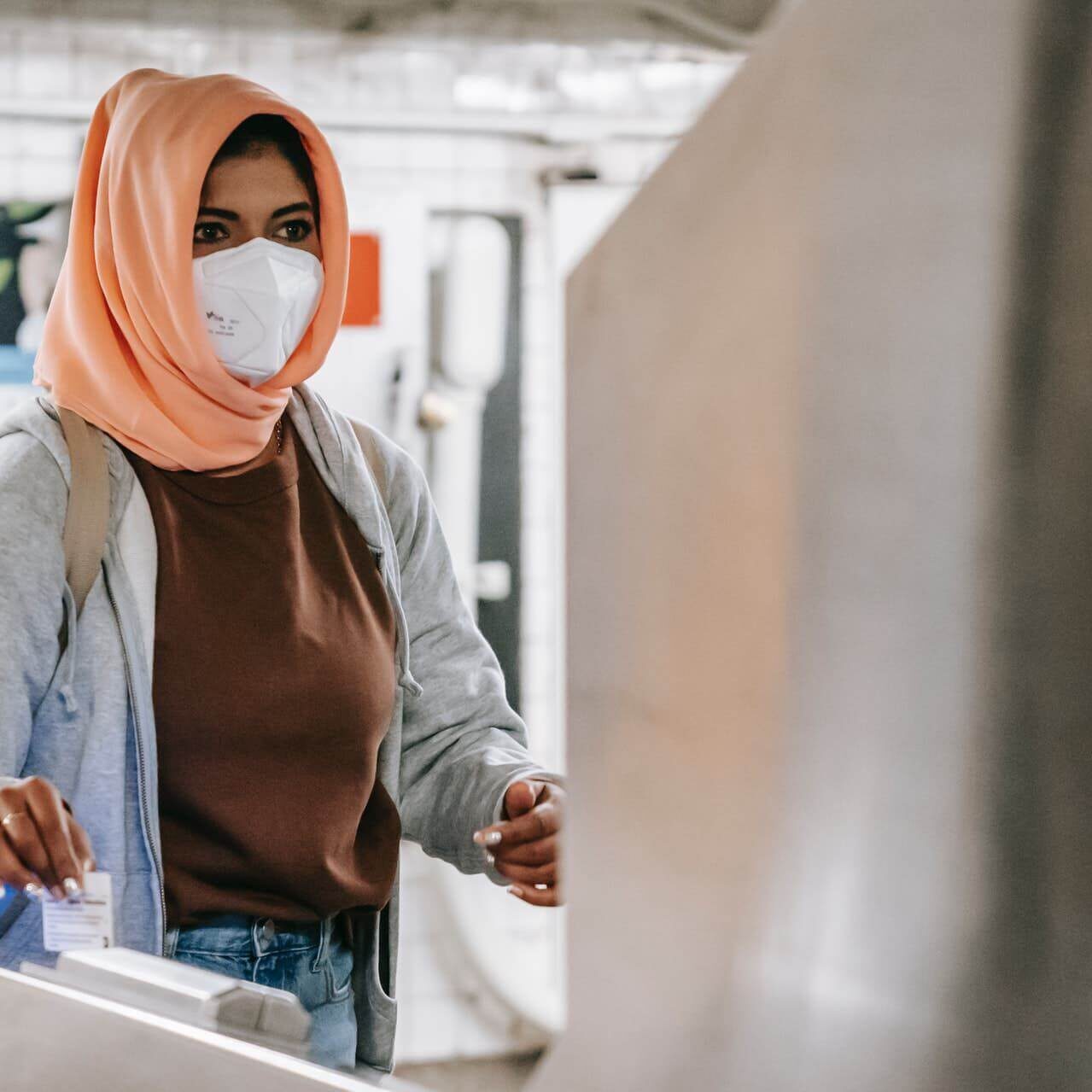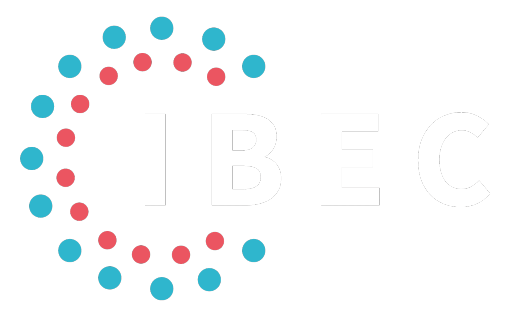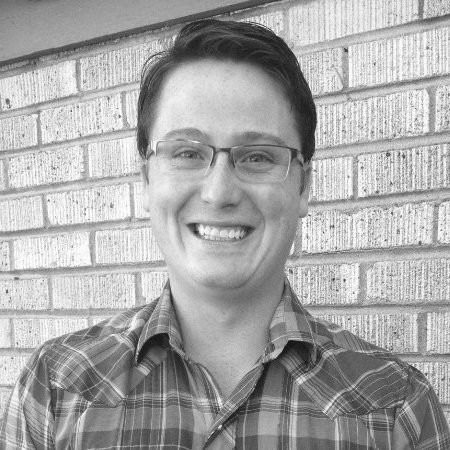We are IBEC.
The Integrated Bioscience and Built Environment Consortium
We seek to accelerate the contributions of science and technology for healthily built environments.
IBEC, a 501 (c)(3) not-for-profit organization, helps bridge the gap between proven scientific processes and real-world applications for healthy gathering. We strive to change how infectious diseases are addressed and contained worldwide.
IBEC has created programs that educate how to successfully mitigate transmission while educating the masses on safe protocols that really make a difference in stifling the unnecessary increase of infectious disease cases and other contagious pathogens.

It's time to make a difference in the way we handle infectious diseases.
At IBEC, we coordinate knowledge and information sharing, including standards, policies, and procedures applied to impact transmission modes in built spaces.
We put our data into use by transitioning research into practice to recover from biological incidents and safely return to routine activities.
We promote confidence, data-driven solutions, and innovative technologies to implement control and management practices to reduce viral transmission
A team of scientists, industrial hygiene engineers, disaster response, and healthcare specialists talked about this coronavirus becoming a global pandemic. When the world was reeling from the March 2020 shutdown that many said would be a few weeks, this team began meeting weekly to map out what they saw would be needed for the next few years of dealing with the predictable challenges of a global pandemic caused by a novel virus.
To form a non-profit and formally agreed to the following titles.
On April 15th, the team agreed to a founding leadership structure

Jayne B. Morrow, PhD

Kenneth F. Martinez (CAPT USPHS Ret)

Edward J. Cowan (CDR USN Ret)

Anthony C. Cowan
This non-profit was temporarily called the International Association of Scientific Critical Cleaning. This organization’s name changed almost immediately as it was pointed out that in today’s world, the word clean has too many meanings, and the standards available to create a certification program using scientific efficacy studies did not yet exist. The very idea of being a science-based organization was revealing the science was not ready.
The new name was the International Association of Environmental Biomonitoring & Clearance Criteria. A fundamental discovery of early conversations saw that a lexicon to define words was necessary as the global pandemic was crossing lines between scientific specialties and government agencies, many of which have distinct definitions for the same words. It was also clear that to make a space safe was going to require a truly holistic approach to hygiene, not just a review of chemicals and cleaning practices. A top-down rewrite of how humanity lives together was going to be required. This included an evaluation of air circulation, water, and sewerage discharge, as well as architectural issues assessing HVAC ventilation and how people move into and out of the space. Jayne Morrow reached out to the SLOAN Institute. She began weekly conversations with the director Paula Olszewski to capture the scope of specialties required to address hygiene in…
Read More
Jayne and Ken started and maintained regular meetings with the steering committee as the world began to see what the founding team had predicted. The shutdowns were going to last significantly longer than a few months. With guidance from the steering committee, the idea of a global summit was born. The purpose of this summit would be to bring together leaders from business, policy, standards development, science, and engineering to understand current knowledge better and identify opportunities to work together to control viral transmission in the built environment. This stimulated another iteration of the organization, and the name changed again. The International Association of Bioscience Environmental Criteria (IBEC). IBEC saw the opportunity to be the bridge between proven scientific processes & real-world applications for healthy congregation.
IBEC shall seek to accelerate the contributions of science and technology for biological detection, decontamination, and the social and behavioral sciences to promote safe congregation and occupancy in built environments. It shall ensure that safe, reliable biological measurement and decontamination standards, guidance, and education materials are available to promote healthy spaces and healthy gatherings throughout the world. It shall promote innovation and development of state-of-the-art and accessible methods for biological monitoring and decontamination.
The idea was to bring industry leaders such as IBM, 3M, and General Motors, corporate leaders such as Hilton, Marriott, and Coca-Cola, and experimental scientists and engineers from universities and national laboratories to discuss the topics of infectious agents and contamination of the built environment. They would distinguish the current practices and already identified gaps in clean-up operations and human/ social system best practices to mitigate infectious agent exposure. This summit would unfold over multiple days to foster in-depth discussion and grow understanding of the science, economic and social impact of the complex interactions of viral transmission in the built environment. To manage the costs associated with this event, IBEC submitted paperwork to Florida to incorporate a non-profit 501C-3, IBEC, Inc.
Objective: To expose issues and challenges to reopening with confidence. Goals: Assess the pain points and challenges faced by a range of industry sectors as they work to reduce transmission and public health risk from COVID Identify current best practices, policies, and procedures for reducing risk and minimizing exposure Start to rapidly identify opportunities for collaboration across industry, government, and academic stakeholders to address identified needs and capability gaps.
Objective: To discuss the current science and Technology Solutions, Gaps, and Research Needs Goals: Assess the state of the science for COVID transmission reduction in the built environment Share existing standards and guidance activities across the landscape Discuss best practices, data-driven solutions, and innovative technologies to help people feel confident and safe in the places where they choose to congregate Identify opportunities to transition research into practice to recover from biological contamination and safely return to routine activities
A request to produce the 4th STAGE was made to address labor and the essential workforce issues, including first responders working with little to no guidance.
Objective: Supporting Science & Innovation for Clean Spaces and Healthy Congregation for the Workforce and Work Space Goals: Identify current standards and guidance being implemented in the workplace Understand current best practices to implement identified standards and help further mitigate risks in the workforce Identify current science-based best practices that would allow the workforce to further reduce risk to the public.
With a proven ability to produce collaborative, interdisciplinary forums, IBEC was asked to develop and publish a 5th STAGE of the clean 2020 summit for the Department of Homeland Security. This event would focus on issues with PPE. It would also demonstrate that IBEC had garnered the respect of government agencies at the highest level.
Objective: Confidence in PPE – Science, and Fidelity of PPE Supporting Healthy Workforce and Workplaces Goals: Identify opportunities to align efforts of public safety, public health, and law enforcement to ensure safe and legitimate PPE supply chains Understand opportunities for collaboration across industry, labor, government, and academic stakeholders to rapidly address identified needs and capability gaps. Identification of opportunities to coordinate knowledge products to establish confidence in PPE. Identify and share research needs with attendees, including policymakers, associations, research entities, standards organizations, and other non-profits who are working to fund knowledge gaps in response to COVID-19
Objective: Revealing the lessons learned in managing risk and tools & strategies for confident operations Goals: Understanding current approaches to risk management and mitigation strategies Provide foundational knowledge on risk reduction Share insights from social and behavioral sciences for effective measures of transmission reduction Define efforts to establish cleaning requirements based on acceptable risk level The first three stages of the CLEAN2020Summit were so successful IBEC was asked to produce a 4th for labor and the essential workforce, including first responders.
Focused on the crucial protection against airborne COVID-19 transmission in public indoor spaces and understanding its spread predominantly indoors. We explored solutions to adapt public buildings to minimize transmission risk.
Examined tools and best practices from infection control to safely resume schooling. Topics covered resilience, recovery, and a confident return to schools with a focus on infection risk management for all stakeholders.
Dr. Marot discussed the role of psychology in our return to public life post-COVID, covering best practices and insights from industrial psychology, neuropsychology, and mindfulness.
Senior economist William Adams analyzed pandemic-induced transformations in the economy, discussing shifts in consumer behavior, business models, and financial markets, plus future forecasts.
Focused on the impact of COVID-19 on faith-based communities, discussing strategies for safe in-person gatherings and community rebuilding, with insights from diverse experts.
This global science-backed pledge aims to promote community awareness, responsibility, and equity. Geared towards preventing airborne diseases such as COVID-19, its design caters to non-technical audiences, emphasizing fair and equitable access to information and focusing on risk prevention.
Jointly organized by IBEC & AIHA with CDC’s funding, the summit featured industry experts, including James Frederick from Occupational Safety. Focused on safety in various sectors from education to agriculture, it assessed best practices and remaining challenges in indoor safety. Key topics: transmission routes, mitigation strategies, challenges in industries, technological innovations, and understanding barriers to adapting to new scientific findings.
Explored rebuilding trust in public transportation post-mask mandate. Topics included air quality, pathogen monitoring, and emergency response to airborne threats.
Delved into the decline of public transportation use due to airborne transmission fears, discussed safety expectations, and emphasized the importance of clear risk communication to the public.
The site underwent a branding update to enhance user experience and shifted its focus from exclusively COVID-19 to all airborne threats and infectious diseases impacting workplaces and communities. New sections added: Risk Assessment, Indoor Air Quality, and Vaccination & Testing. Additionally, dedicated pages feature top resources from CDC and AIHA, underscoring our commitment to safeguarding people.
Analyzed the response to COVID-19, highlighting the need for integrated disaster response over solely healthcare measures. Panelists discussed global lessons learned and the distinction between disaster and public health responses.
An experienced leader, Coby has previously grown the Montana State Parks Foundation’s fundraising from $90,000 in 2017 to over $1 million in 2022 and expanded its newsletter audience from 40,000 in 2018 to 140,000 in 2022. Now at IBEC, he’s leading the strategic growth plan for the educational program Commit 2 C.A.R.E., garnering recognition from organizations including the CDC, AIHA, and the White House Office of Science and Technology Policy.
IBEC brought together a diverse group of air quality experts and leaders to discuss the industry’s current state and explained the organization’s vision for an operational indoor air quality framework.
IBEC leadership team members all met in person for the first time since IBEC was established as an organization.
IBEC developed and distributed knowledge products related to Invasive Group A Streptococcus at the request and recommendation of IBEC Scientific Advisory Board Members.
IBEC completed the development and began sharing knowledge products addressing Germicidal UV technologies, in-room air cleaners, vaccines, and testing as a part of our Commit to C.A.R.E initiative with the American Industrial Hygiene Association (AIHA).
IBEC hosted a virtual follow up meeting with stakeholders and potential partners on the development of an operational indoor air quality framework. Over 46 individuals representing over a dozen different groups, agencies, or organizations registered and participated.
IBEC met with many potential partners, funders, and organizations with similar interests, including Johnson Controls, The Helmsley Charitable Trust, the Laborers’ International Union of North America (LIUNA), the Institute of Inspection Cleaning and Restoration Certification (IICRC), Safe Traces, and many others.
IBEC provided valuable public comments on the new ASHRAE 241 Standard “Control of Infectious Aerosols,” which was released in the summer of 2023. This standard informs how the indoor air quality industry will be regulated.
IBEC secured $99,974 in grant funding for developing and distributing knowledge products intended to help prevent the resurgence of mpox in at-risk communities in the US.
IBEC successfully hosted its first installment of the Lessons Learned web series focusing on indoor air quality and infectious disease transmission in the built environment. With 225 registrations, the event featured speakers from Harvard University, Johns Hopkins University, the Occupational Safety and Health Administration (OSHA), the American Industrial Hygiene Association (AIHA), and the American Society of Heating, Refrigerating and Air-Conditioning Engineers (ASHRAE).
Highlighted the revolution in Indoor Air Quality (IAQ) during 2023, with an emphasis on public health. IBEC and AIHA presented a bi-monthly series spotlighting clean indoor air’s role against diseases. Featured panelists from various institutes discussed the potential of IAQ to prevent disease transmission.
IBEC helped shape the future of indoor air quality regulations and policy by working with Johns Hopkins University to create and share draft state-level legislation introduced in Massachusetts to enhance indoor air quality in public buildings.
In partnership with AIHA, IBEC launched a directory listing service for potential air quality service providers on the Commit to C.A.R.E website.
In the second of the six-part CLEAN Lessons Learned series dedicated to indoor air quality (IAQ) and its impact on infectious disease transmission in the built environment, IBEC shifted its focus to a topic of utmost importance: understanding the presence, risks, and ways to mitigate the spread of infectious disease in indoor spaces. With 132 registrations, the event featured speakers from the National Institute for Occupational Safety & Health (NIOSH), Biosafety International, the National Strategic Research Institute at the University of Nebraska (NSRI), and McGill University.
In the third session of the six-part CLEAN Lessons Learned series dedicated to indoor air quality, IBEC dived deep into the pivotal role of ventilation in maintaining healthy indoor environments and discussed its effectiveness as a tool against spreading infectious diseases. With 284 registrations, the event was sponsored by Johnson Controls and featured speakers from Virginia Tech, the American Society of Heating, Refrigerating and Air-Conditioning Engineers (ASHRAE), Stantec, Inc., and Safetraces.
In the fourth installment of IBEC’s six-part CLEAN Lessons Learned series dedicated to indoor air quality (IAQ) and its impact on infectious disease transmission in the built environment, IBEC discussed innovative techniques for measuring airborne biological hazards, aiming to bridge the gap between current indoor air quality assessments and the need for more nuanced approaches to validate health risks. With over 100 registrations, the event featured speakers from Safetraces, WSP, Northern Illinois University, Exposure Assessment Consulting, LLC, Ohio State University, Yale University, and Insight Exposure & Risk Sciences Group.


